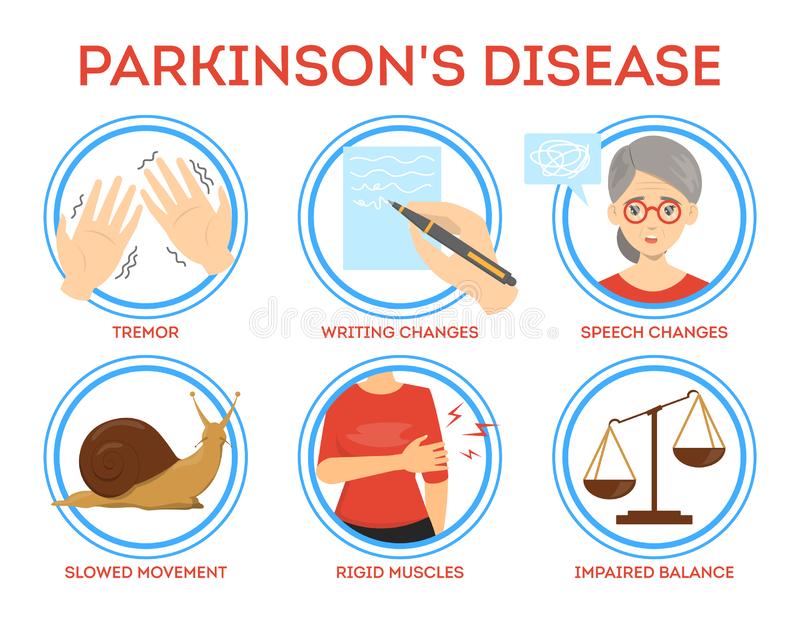Certainly! Parkinson’s disease is a neurodegenerative disorder that primarily affects movement. The common symptoms for Parkinson’s disease are as follows:
1-Tremors: Resting tremors, usually in the hands or fingers, are a hallmark symptom of Parkinson’s disease.
2-Bradykinesia: This refers to slowness of movement, making everyday tasks more challenging.
3-Muscle Rigidity: Stiffness in the limbs and trunk can lead to reduced range of motion and discomfort.
4-Postural Instability: People with Parkinson’s may have difficulty maintaining balance and an increased risk of falls.
5-Gait Changes: The characteristic “Parkinsonian gait” involves shuffling steps, reduced arm swing, and a stooped posture.
6-Freezing: Some individuals experience freezing of movement, often when trying to initiate walking or other actions.
7-Micrographia: Handwriting may become progressively smaller and more difficult to read.
8-Non-motor Symptoms: Parkinson’s disease can also cause non-motor symptoms such as depression, anxiety, sleep disturbances, constipation, loss of sense of smell, and cognitive changes.
9-Speech and Swallowing Difficulties: Speech may become softer, less clear, or slurred, and swallowing problems can occur.
A neurologist or movement disorder specialist will work closely with the patient to develop a personalized treatment approach for managing Parkinson’s disease.
It’s essential to consult with Dr. Amit Shah, a healthcare professional or Neurologist in Mumbai practicing at Dr. Amit Shah Neurology Clinic for a proper diagnosis and individualized care.



